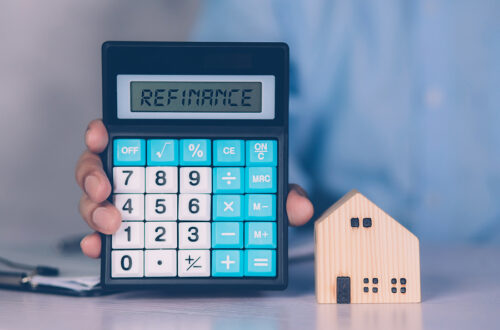When it comes to debt and how it is handled in a bankruptcy case, two main categories exist, namely secured and unsecured debt. Even if you are not at the point yet where you will be filing for bankruptcy, knowing the type of debt involved can make a big difference, especially when money is tight, and you are worried about which debt to pay first: the mortgage or the credit card bill.
The main difference between secured and unsecured debt is the fact that one debt is secured by collateral and the other is not. Secured debt is debt that is guaranteed by collateral, which is something of value that the lender can seize for payment in the event the borrower is no longer able to pay on the debt.
Mortgages and auto loans are classic examples of secured debt. If you default on your mortgage or your car loan, the bank can foreclose on your home or repossess your vehicle to satisfy the debt. In comparison, unsecured debt is debt that is issued to someone but is not guaranteed by collateral. The most common types of unsecured debt include payday loans, credit card debt, student loans, and medical bills.
When you are not able to continue paying on your unsecured debt, the lender cannot collect your property to satisfy the debt. However, they can report your account as delinquent, which will hurt your credit score. They can also pursue a legal judgment against you for the debt, resulting in a possible wage garnishment.
For the most part, secured debt tends to carry a lower interest rate on the amount owed. The main reason for this difference is the lender has some type of guarantee that they will receive payment, even if you default later. The lender does not have that same guarantee with unsecured debt. It is for this reason that unsecured debt tends to carry a higher interest rate because the investment is seen as more risk for the lender.
When it comes to a bankruptcy case, secured debt is handled differently than unsecured debt. If you are filing a Chapter 7 bankruptcy case, unsecured debt normally ends up being discharged at the end of the case, while secured debt can stay with the asset. If you are struggling to pay unsecured debt, such as credit cards or medical bills, filing a Chapter 7 bankruptcy case may be a viable option for dealing with the debt. If you are struggling to pay for both secured and unsecured debt, a Chapter 13 bankruptcy case may be a good option to allow you to continue paying on your mortgage and stay in your home while discharging unsecured debt at the end of the payment period. An experienced bankruptcy attorney can evaluate your financial situation, after looking at the different types of debt you are carrying to determine which plan is best for you.
Click here to read more on this story.
If you have questions on this topic or are in financial crisis and considering filing for bankruptcy, contact an experienced Miami bankruptcy attorney who can advise you of all of your options. As an experienced CPA as well as a proven bankruptcy lawyer, Timothy Kingcade knows how to help clients take full advantage of the bankruptcy laws to protect their assets and get successful results. Since 1996 Kingcade Garcia McMaken has been helping people from all walks of life build a better tomorrow. Our attorneys’ help thousands of people every year take advantage of their rights under bankruptcy protection to restart, rebuild and recover. The day you hire our firm, we will contact your creditors to stop the harassment. You can also find useful consumer information on the Kingcade Garcia McMaken website at www.miamibankruptcy.com.

